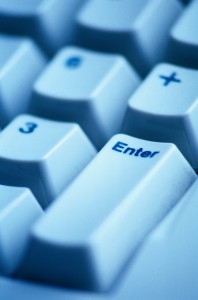These days, your social life is never farther than your desktop, laptop or phone. Through a variety of devices and social platforms, not only can you stay in touch with all your friends from college, but also the ones from high school, grade school, Sunday school and your gym.
Unfortunately all of this intermingling of social spheres often leads to an information seep, where what you plan for only some people to see is in fact seen by many others. Information that was meant only for family, say, can often be easily seen by acquaintances, coworkers, or clients. Once you’ve shared information online, it can be disseminated across the globe with a quick click of a button or sometimes, simply doing nothing. No matter what the privacy settings are on your social media account, if a friend’s settings do not carry the same restrictions, there’s no telling who has access to your information.
All of this presents two big challenges to nurses who use social media. First, patients, family members and co-workers may find information that you’d prefer they not have. Second, even complaining about a tough day at work could put you at risk for violating the Health Insurance Portability and Accountability Act (HIPAA).
For the generation that has grown up with websites such as MySpace, YouTube, Facebook and Twitter, social media has become as ubiquitous as email. So it is easy to lose sight of the fact that sharing work challenges for a limited audience may become global information depending on the discretion of the audience and individual privacy settings. The expression “if you don’t want it all over the internet, don’t put it anywhere on the internet,” holds true for every venture into social media. That includes one-on-one conversations.
When Congress enacted HIPAA in 1996, it did so primarily to enforce an ethical responsibility to protect the privacy of patients and their information. A posting from a nurse on Facebook about a difficult day with the patient in room 213 because she “just couldn’t make him happy,” could result in discipline if not outright dismissal from the job. If a patient, family member or any other private citizen can see the nurse’s employer from her profile and knows the name of the person in room 213 on that day, the patient has been identified. Job loss is a real threat, and what one nurse may think is a harmless complaint about an unnerving day could land her on the unemployment line for violating a Federal mandate.
Hospital and healthcare organizations have adopted internal policies regarding the use of social media and although most of them ban any use of the electronic social venues during work hours, there are professional advantages to using social media. Discussions on research, new technology, practice and professional development can all be accomplished through social media forums. A nurse’s professional online presence may foster network building and lay the groundwork for mentoring relationships. And as this article indicates, smartphones are increasingly being used for things like quickly looking up drug interactions.
Words of caution….
One big disadvantage of maintaining any type of line presence is that you have little control over who can find you. Patients and family members who have read your last name on your badge, might suddenly start following your Twitter feed or send you a friend request on Facebook. The decision to allow this is entirely personal, but blurring the lines of patient-to-nurse care might present challenges with an employer and make future interactions with patient difficult. In the same vein, just as a patient can read public postings, so can an employer. The expression “discretion is the better part of valor” may be a good guide when nurses use social media.

